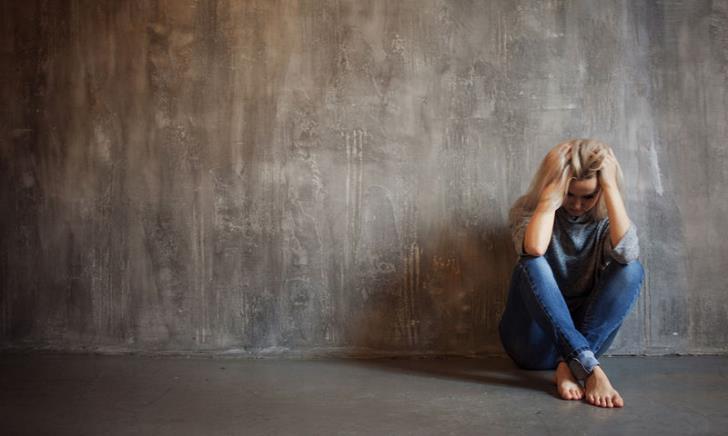Once again in a state of semi-confinement in the "Omicron" mutation of the pandemic and in the measures to stop it, the reports about the psychological pressure that has been exerted on us for almost two years are increasing. Our lives have been "taken down" all this time. From one meter to another, from one controversy to another and edge does not appear on the horizon.
And where at the beginning of the pandemic the required attention was not paid to the psychological factor, lately the discussions have increased. For anxiety, depression and many other psychogenic diseases.
A pioneering research conducted in Cyprus these days has come to the fore for the help that one can receive with symptoms of depression with new treatments or a combination of them. And this without abolishing or canceling the already applied ones, The second world-famous magazine frontiers in Psychiatry, gives us the first data.
We can only emphasize that despite the pandemic, the scientific news that is coming to us is optimistic.
The publication of the magazine
Depression is a common mental disorder that affects over 264 million people worldwide, and a significant proportion of patients do not respond to antidepressants, which can exceed 30%.
Nowadays alternative treatment options are offered, such as ketamine therapy and repetitive transcranial magnetic stimulation (rTMS) therapy.
This study, which is perhaps the first in the world to compare these two methods of treatment of depression in a clinical setting, was conducted in Cyprus and has been pre-published by "frontiers in Psychiatry" - a well-known and internationally renowned journal in the field - and co-signed by psychiatrist dr. George Mikellidis, Panagiota Michael, dr. Lilia Psalta, Ph.D. Teresa Schuhmann and Dr. Alexander Sack (Cyprus rTMS, UCLAn, University of Nicosia, Maastricht University) describes and compares the acute antidepressant efficacy of both intramuscular ketamine and rTMS in depressed patients seeking help in a naturalistic clinical mental health setting. The clinical records of 24 patients with treatment-resistant depression were collected from the clinical basis of a real-life clinical trial. Twelve patients were treated with intramuscular ketamine twice weekly for 8 sessions and twelve patients were treated with 30 sessions of left dorsal frontal cortex with intermittent theta-burst stimulation (DLPFC-iTBS).
Using three clinical evaluations (HDRS, HAM-A, BDI-II), the data reveal that both treatments resulted in significant improvement in symptoms before and after treatment, and that the two experimental groups did not differ significantly in relation with depressive and anxiety symptoms, indicating that the effect of both experimental groups on the sample was equally effective.
In addition, our results showed high rates of depression and response in both groups, with no statistical differences between patients in the ketamine group and the rTMS group in depression and response rates. We show a significant reduction in the symptoms of depression and anxiety before and after treatment, with no significant differences between the two experimental groups, indicating that the effect of both treatments was equally effective in our limited sample.
Ketamine relief
The psychiatrist Dr. George Mikellidis informs us about what ketamine is and what its hopeful effects are.
Ketamine is an anesthetic drug that has been investigated in recent years for its antidepressant action. At our center (rTMS) we offer the treatment of ketamine for depression in injectable form and it is administered intramuscularly. A complete treatment includes a series of 6-8 injections made in 3-4 weeks. Ketamine treatment can be described as rapid as sometimes in just a few hours it can provide significant relief from the symptoms. Most patients show significant relief within 1-2 days of the second treatment. It can also provide relief without the unpleasant side effects of antidepressants.
Ketamine treatment for depression is considered a very promising treatment option with an efficiency rate of up to 80%. I read that its use began with its administration to American soldiers in the Vietnam War. Half a century has passed. Is its usefulness being discovered now?
The use of ketamine dates back to many years ago when in times of war small doses of ketamine were used both as an anesthetic and to reduce stress. Ketamine is a racemic mixture of two enantiomers, S-ketamine (esketamine) and R-ketamine. In recent years, ketamine has come to the fore as many studies have been conducted by universities abroad with the results showing that it has a very good antidepressant effect.
- Since when is ketamine available to science?
The US Food and Drug Administration (FDA) approved ketamine for human use for the first time in 1970 and more recently, in 2019, escetamine for the treatment of persistent depression. Escetamine has been approved as an intranasal spray for the treatment of depression in adults with persistent depression who have not received adequate improvements from other antidepressants. A recent systematic review and meta-analysis showed that ketamine is more effective than escetamine.
- How important is the degree of personalization in neuropsychiatric disorders? I mean, does rTMS "bypass" the need for psychoanalysis or psychotherapy?
The use of personalized therapy nowadays is considered of utmost importance. Even when it comes to rTMS therapy, the recent introduction of neuronavigation, a new method that involves personalized and accurate navigation of the TMS coil to stimulate a specific area of the brain - based on brain anatomy - reveals the importance of personalization in the treatment of neuropsychiatric disorders. The purpose of rTMS is not to "bypass" other forms of treatment such as psychoanalysis and psychotherapy. In contrast, several studies have shown that combining rTMS with other therapies is quite effective as patients present with significantly improved clinical condition.
philenews.com
